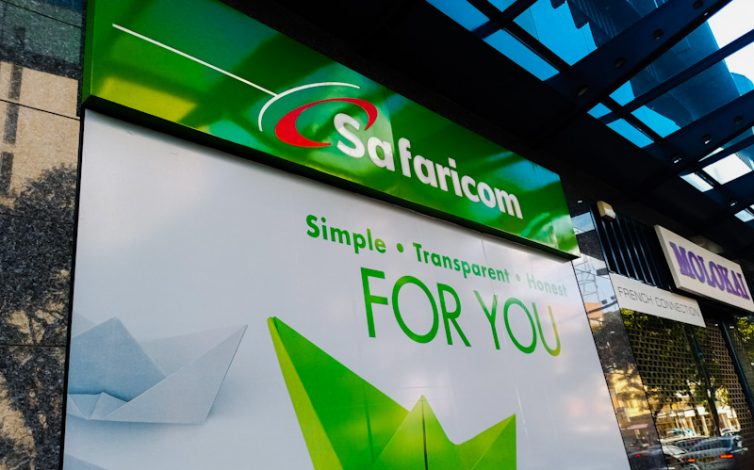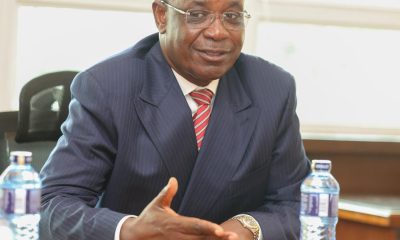Kenya’s consumer advocacy groups have stepped up their campaign to have Safaricom declared a dominant operator, arguing that regulatory intervention has become urgent to protect competition in the country’s telecommunications sector and prevent potential consumer harm.
The Consumers Federation of Kenya has called on the Communications Authority to formally designate Safaricom as dominant under existing competition regulations, a move that would subject the telecommunications giant to heightened regulatory scrutiny and impose additional obligations designed to level the playing field for smaller competitors.
The push comes as Safaricom’s market position continues to dwarf its rivals.
According to the latest Communications Authority statistics, the company controls approximately 63 per cent of all voice minutes and commands an overwhelming 88 per cent share of SMS traffic.
Its dominance extends across mobile subscriptions and data services, where competitors including Airtel, Telkom Kenya, and Equitel remain distant followers.
Stephen Mutoro, secretary general of COFEK, has dismissed Safaricom’s characterisation of such regulatory action as “punishing success,” insisting instead that dominance designation represents a pro-consumer safeguard rather than a penalty.
“This is not about clipping Safaricom’s wings,” he said. “It is about ensuring the company continues to innovate without stifling the rest of the sector.”
The legal framework for such intervention exists within Kenya’s Fair Competition Regulations of 2010, which mandate that once an operator can act independently of both rivals and customers, the Communications Authority must declare it dominant and impose appropriate safeguards. Under the Competition Act, dominance itself remains lawful; only its abuse constitutes a violation.
Consumer advocates warn that unchecked market power can produce several harmful effects.
These include network lock-in, where consumers remain tethered to a single operator due to significantly cheaper on-net calling rates, and reduced digital access as smaller competitors struggle to match the infrastructure and reach of the market leader.
Such conditions, they argue, ultimately weaken competition, slow innovation, and may even breed complacency within the dominant firm itself.
The implications of a dominance declaration would be significant for both the company and its customers.
Safaricom would face restrictions on certain commercial practices, requirements for transparent pricing, and obligations to provide fair access to its infrastructure.
The company might also be prevented from leveraging its position in one market segment to gain unfair advantages in others.
For consumers, the potential gains are substantial.
A dominance designation could force Safaricom to narrow the gap between on-net and off-net calling rates, a practice that currently keeps millions of Kenyans locked into the network simply because switching would make calls to friends and family prohibitively expensive.
The move could also compel the operator to offer more competitive data pricing and ensure smaller rivals can access infrastructure necessary to expand coverage and improve service quality.
For Safaricom, which has built its success on aggressive innovation including the pioneering M-Pesa mobile money platform, a dominance designation could constrain its commercial flexibility and potentially impact profit margins.
The company has historically argued that its market share reflects superior service quality and investment rather than anti-competitive behaviour.
Yet consumer advocates point to precedents from across the Commonwealth, citing cases from United Brands in Europe to Telkom matters in South Africa, which establish that dominant firms bear special responsibilities to maintain fair market conditions.
These legal principles recognise that market leadership confers both power and obligation.
The Communications Authority now faces a decision that will shape Kenya’s telecommunications landscape for years to come.
While the regulator has previously hesitated to invoke dominance provisions, mounting pressure from consumer groups and growing evidence of market concentration may force its hand.
For consumers, the outcome could determine whether Kenya’s mobile market evolves toward greater competition and choice, or whether Safaricom’s commanding position solidifies further.
The stakes extend beyond telecommunications to the broader digital economy, where mobile connectivity underpins everything from financial services to agricultural commerce.
As COFEK’s campaign gains momentum, the question is no longer whether Safaricom meets the technical criteria for dominance designation, but whether regulators possess the political will to act on what consumer advocates insist has become an urgent imperative for market fairness and consumer protection.
With millions of Kenyans potentially standing to benefit from fairer pricing and genuine network choice, the pressure on the Communications Authority to act has never been greater.


 Investigations1 week ago
Investigations1 week ago
 Reviews2 weeks ago
Reviews2 weeks ago
 Investigations1 week ago
Investigations1 week ago
 Africa1 week ago
Africa1 week ago
 Investigations1 week ago
Investigations1 week ago
 News1 week ago
News1 week ago
 News1 day ago
News1 day ago
 Investigations2 weeks ago
Investigations2 weeks ago















